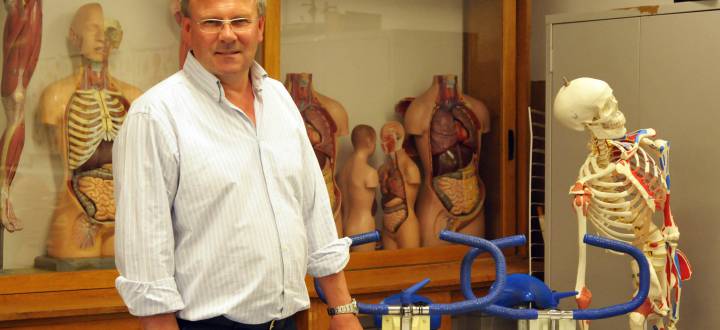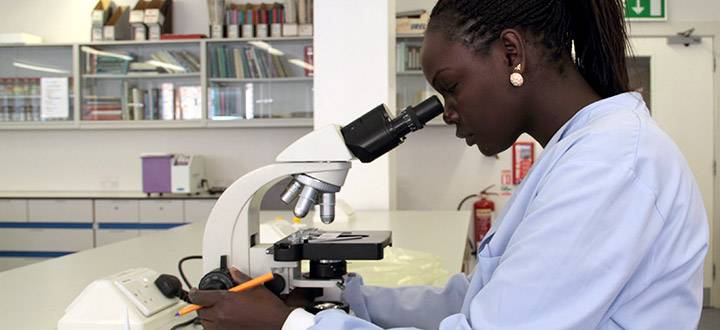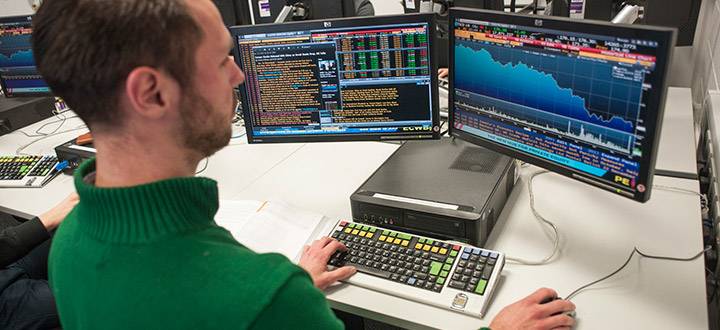Explosion of funding for fire expert
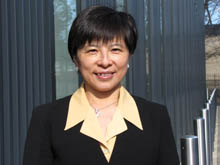 The Faculty of Engineering's fire and explosion expert, Professor Jennifer Wen has won four major funding awards from the EU and industry. Jennifer is Director at the Centre for Fire and Explosion Studies (CFES) and has an international reputation in this area. She says the grants represent a significant achievement in the current climate.
The Faculty of Engineering's fire and explosion expert, Professor Jennifer Wen has won four major funding awards from the EU and industry. Jennifer is Director at the Centre for Fire and Explosion Studies (CFES) and has an international reputation in this area. She says the grants represent a significant achievement in the current climate.
"We are in an economic downturn and there is increasing competition for research funding but we have once again proved that world class research can be developed and sustained at Kingston," she said.
The funding, worth £800k, has come as Jennifer's four-year 1m EU HYFIRE project is ending. HYFIRE looked at safety issues in the emerging hydrogen economy. It used technical data from explosion experiments by BP and the Health and Safety Laboratory to develop tools for predicting spontaneous ignition, fire and explosions in hydrogen.
Jennifer said HYFIRE helped the CFES to extend its activities from fire modelling and fire safety, into explosion safety studies and this led to new EU funding. The grant of 240k is from the Marie Curie International Incoming Fellowships for a research fellow from outside the EU to come to Kingston to study the detonation of gaseous and vapour cloud explosions.
A second researcher is to be funded by the Intra-European Fellowships for Career Development, also for 240k, to come to Kingston from the renowned CORIA Laboratory, INSA Engineers School of Rouen in France. This study will look at the combustion characteristics of alternative fuels such as syngas, which is synthesis gas from organic waste.
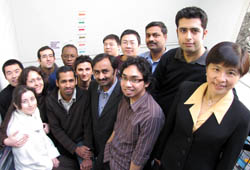 Jennifer is also part of a multi-million pound consortium funded by the international electricity and gas company, National Grid (NG), to study safety issues around carbon capture and storage (CCS). This has led to an award of £300k as part of the NG-led Dense Phase CO2 Pipeline Transportation (COOLTRANS) project to look at safety and design issues related to the transportation of pressurised CO2 by pipeline.
Jennifer is also part of a multi-million pound consortium funded by the international electricity and gas company, National Grid (NG), to study safety issues around carbon capture and storage (CCS). This has led to an award of £300k as part of the NG-led Dense Phase CO2 Pipeline Transportation (COOLTRANS) project to look at safety and design issues related to the transportation of pressurised CO2 by pipeline.
"There is growing world-wide interest in CCS as a way of tackling global warming," Jennifer said. But we don't yet know if it is safe to store CO2 long term and what might happen if either solid or liquid state CO2 accidentally gets into the environment. Each part of this work is at the cutting edge."
The fourth grant is from a leading insurance company, FM Global, which is providing $116k to support Kingston researchers to develop computer models to understand how complex fuels catch fire and how to suppress them.
Contact us
- For non-student research enquiries, email the Research Office
- Research contacts
- Graduate Research School contacts
- Business and Enterprise contacts
- How to get to Kingston University
Contact us
- For non-student research enquiries, email the Research Office
- Research contacts
- Graduate Research School contacts
- Business and Enterprise contacts
- How to get to Kingston University
